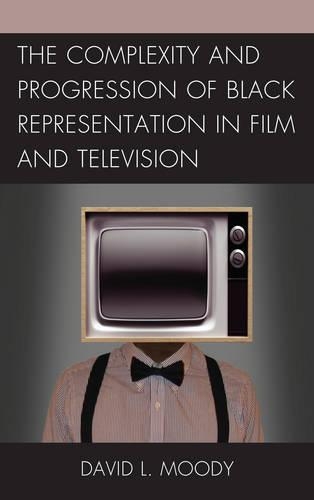
The Complexity and Progression of Black Representation in Film and Television
(Paperback)
Available Formats
Publishing Details
The Complexity and Progression of Black Representation in Film and Television
By (Author) David L. Moody
Contributions by Rob Prince Obey
Bloomsbury Publishing PLC
Lexington Books
31st October 2017
United States
Classifications
Professional and Scholarly
Non Fiction
Ethnic studies / Ethnicity
Social discrimination and social justice
Communication studies
Racism and racial discrimination / Anti-racism
302.234096073
Physical Properties
Paperback
168
Width 152mm, Height 229mm, Spine 13mm
254g
Description
The Complexity and Progression of Black Representation in Film and Television examines the intricacies of race, representation, Black masculinity, sexuality, class, and color in American cinema and television. Black images on the silver screen date back to the silent film era, yet these films and television programs presented disturbing images of African American culture, and regrettably, many early films and small screen programs portrayed Black characters in demeaning and stereotypical roles. In order to fully analyze the roles of Black actors and actresses in film and television, Moody addresses the following issues: the historical significance of the term race films; female Black identities and constructs; queerness and Black masculinity; Black male identities; and Black buffoonery in film and television.
Reviews
The emphasis that Moody places on questions regarding the spectacle and the importance of the indexical bond that exists between image and truth has historically grave implications that go back to The Birth of a Nation and the rise of the KKK in the 1920's. It is key to anyone who wants to understand the genealogy of American racism and its relationship with the moving image. -- Denis Mueller, creator of Howard Zinn: You Can't Be Neutral on a Moving Train; Peace Has No Borders; Nelson Algren: The End Is Nothing, the Road Is All
Author Bio
David L. Moody is assistant professor in the Department of Communication Studies at the State University of New York at Oswego.
